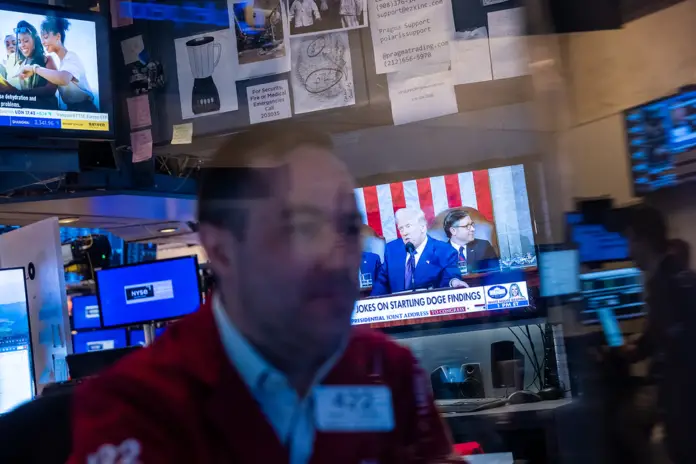Staff Reporter
Emerging-market stocks have experienced their steepest decline since 2008, with developing currencies also taking a hit as the repercussions of U.S. tariffs continue to shake global markets.
On Monday, MSCI’s primary emerging equity index plummeted by as much as 8.4%, marking its most significant drop since the global financial crisis.
Meanwhile, the index for emerging-market currencies fell by up to 0.5%, its worst performance in two months. The Colombian peso suffered the most, dropping over 2% against the dollar, while currencies in South Africa, Chile, and Mexico fell by at least 1.2%.
The sweeping tariffs imposed last week are raising concerns about a potential slowdown in the U.S. economy. Economists, including those at Goldman Sachs Group Inc., are warning of recession risks, prompting traders to increase bets on potential interest rate cuts by the Federal Reserve.
These elevated tariffs could severely impact trade and economies in developing nations, especially as countermeasures begin to take effect. Hard currency bonds from countries like Pakistan and Sri Lanka, facing levies of 29% and 44% respectively, were among the hardest hit on Monday.
In response to the tariffs, Beijing has implemented retaliatory measures, including levies on U.S. imports announced on Friday. This prompted Chinese shares in Hong Kong to plummet by 13.8% on Monday, pushing the market into bear territory.
The recent volatility in global markets has prompted several central banks to step in to defend their currencies. While Indonesian markets remain closed for a week-long holiday, the central bank took action on Monday to prepare for a potentially turbulent reopening by intervening in the offshore rupiah market. Officials indicated they would “aggressively” intervene in the onshore market when it reopens on Tuesday.
In Nigeria, the central bank sold dollars to ensure “adequate liquidity” and prevent further erosion of the naira’s exchange rate. Earlier in the day, state-backed lenders in Taiwan also sold U.S. dollars to stabilize their currency.
Morgan Stanley has advised investors to increase their bearish positions on emerging-market currencies while recommending greater exposure to local debt and interest-rate swaps, anticipating a more dovish approach from central banks in developing nations.
“We don’t believe FX markets are fully pricing in a global recession,” strategists, including James Lord, wrote in a note on Monday. They suggested taking long positions on the U.S. dollar against the Colombian peso and betting on the euro to gain against the Polish zloty.
“Anyone buying risk on these headlines is taking a huge gamble, to state the obvious,” said Win Thin, global head of markets strategy at Brown Brothers Harriman.


